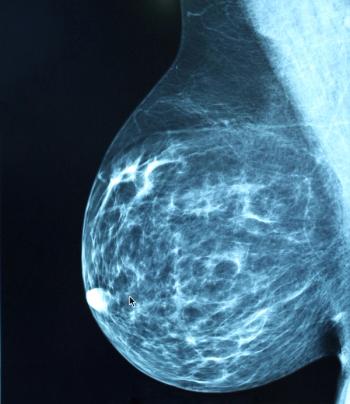
Oncology NEWS International
- Oncology NEWS International Vol 16 No 3
- Volume 16
- Issue 3
Feds Cut Cancer Funding, But at What Cost to Research?
Over the past several decades, investment through the National Cancer Institute (NCI) has become an essential source of support for academic and clinical cancer research. The dividends paid by this investment have been discoveries that have reduced suffering and mortality due to cancer. For cancer patients and survivors, it is money well spent.
Over the past several decades, investment through the National Cancer Institute (NCI) has become an essential source of support for academic and clinical cancer research. The dividends paid by this investment have been discoveries that have reduced suffering and mortality due to cancer. For cancer patients and survivors, it is money well spent.
The February issue of ONI highlighted the six most notable cancer advances of 2006 from the American Society of Clinical Oncology's (ASCO) second annual "Clinical Cancer Advances" report. Much of our progress in developing effective cancer strategies for treatment, prevention, and screening, such as those in ASCO's report, have been fueled by federally funded biomedical research. In the report, ASCO urged increased federal funding for cancer research in 2007.
However, as with all line items in the federal budget, NIH funding is subject to the whims of the current political climate. Unfortunately, for the first time since the 1971 National Cancer Act was signed, the Bush administration is proposing substantial spending cuts to the National Institutes of Health (NIH) budget for FY2008, which will ultimately reduce NCI funding for cancer research.
To put the current downtrend into perspective, national defense spending has escalated to approximately $1,600 per capita, whereas federal spending for biomedical research currently amounts to about $97 per capita.
Moreover, according to ASCO, cooperative cancer groups nationwide might have to close or delay as many as 95 trials this year, nearly half of the trials the groups conduct annually. Allen Lichter, MD, executive vice president of ASCO, commented that the Bush administration cuts have "a real cost in human life. At a time when we are finally making progress, they are pulling the rug out."
Although it is too soon to quantify in clinical and human terms what the impending budget cuts mean, it is important to note the historical significance and possible long-term trend that may develop. This economic downturn also threatens to erode the pool of investigators skilled in clinical research.
NIH training grants are a major source of financial support for clinical fellows during their research experience. Budgetary limitations adversely affect the training climate. As it becomes increasingly difficult to find money for investigators to fund their research, younger researchers might become frustrated and chose alternate career paths. Down the road, with a shrinking pool of the best and brightest, the pipeline of new clinical discoveries could also shrink.
A robust stream of money for scientific research is needed in order to build on the exciting advances in the biologic understanding and clinical treatment of cancer. The oncology community understands that our national budget is strained by, among other things, the war in Iraq. But our government also has another war to fund, one declared more than 3 decades agoThe War on Cancer. To leave that war underfunded would not only be wrong, it would be a commitment to the public left unfulfilled.
The editors encourage letters and comments from our readers. Please send your thoughts on this, or any piece that appears in "Cancer Care & Economics," to
rpiana@cmp.com
.
Articles in this issue
almost 19 years ago
Peptide-Based Breast Ca Vaccines Promising in Early Trialsalmost 19 years ago
Diagnostic Dilemma: GI Diseasealmost 19 years ago
Imatinib Responses in CML May Take Timealmost 19 years ago
IV Vidaza Approved; Oral Formulation to Be Testedalmost 19 years ago
Study Confirms Avastin Advantage in Advanced NSCLCalmost 19 years ago
Legal Services Should Be a Component of Standard Cancer Carealmost 19 years ago
Mouse Virus Evidence Suggests Viral Basis for Breast Caalmost 19 years ago
Groups Oppose Ruling on Access to Experimental Drugsalmost 19 years ago
Satellite Allows Digital Mammography Screening for Rural Native Americansalmost 19 years ago
Nexavar Effective in Advanced HCC: Phase III Trial StoppedNewsletter
Stay up to date on recent advances in the multidisciplinary approach to cancer.





































